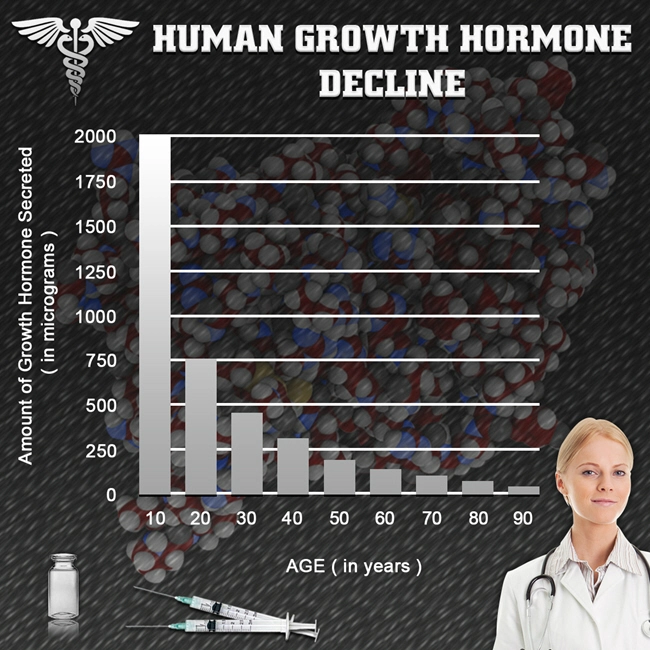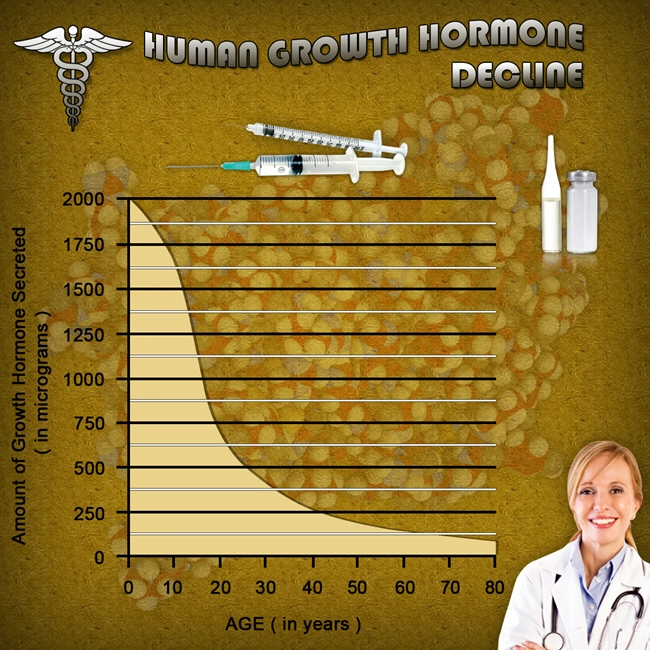
Introduction
Androgen deficiency in men, commonly associated with aging or medical conditions, can significantly impact various bodily functions, including those of the lower urinary tract. Recent research has explored the utility of sensory evoked potentials (SEPs) in assessing neurophysiological changes related to urinary function in this demographic. This article delves into the application of SEPs in understanding and managing lower urinary tract symptoms (LUTS) in androgen-deficient men, a topic of growing interest in the field of urology.
Understanding Androgen Deficiency and Its Impact on the Lower Urinary Tract
Androgen deficiency, often referred to as hypogonadism, can lead to a variety of symptoms, including changes in urinary function. The lower urinary tract, comprising the bladder and urethra, is sensitive to hormonal fluctuations, and androgen deficiency can result in LUTS such as increased frequency, urgency, and nocturia. Understanding the neurophysiological basis of these symptoms is crucial for effective management.
The Role of Sensory Evoked Potentials in Urological Assessment
Sensory evoked potentials are a diagnostic tool used to assess the integrity of neural pathways. In the context of urology, SEPs can help evaluate the sensory pathways involved in bladder function. By measuring the electrical activity generated in response to stimuli, SEPs provide valuable insights into the neural control of the lower urinary tract. This is particularly relevant in androgen-deficient men, where hormonal imbalances may affect neural signaling.
Neurophysiological Correlates of Androgen Deficiency
Studies have shown that androgen deficiency can alter the latency and amplitude of SEPs, indicating changes in neural conduction. These alterations may correlate with the severity of LUTS, suggesting that SEPs could serve as a biomarker for assessing the impact of androgen deficiency on urinary function. By understanding these neurophysiological correlates, clinicians can better tailor treatment strategies to address both hormonal and symptomatic aspects of the condition.
Clinical Implications and Future Directions
The use of SEPs in the assessment of LUTS in androgen-deficient men has significant clinical implications. It offers a non-invasive method to evaluate the neural pathways involved in bladder function, potentially guiding therapeutic interventions. For instance, if SEPs indicate significant neural impairment, treatments such as testosterone replacement therapy might be considered to address both hormonal and urinary symptoms.
Future research should focus on longitudinal studies to better understand the progression of neurophysiological changes in androgen-deficient men and their correlation with LUTS. Additionally, exploring the potential of SEPs in predicting treatment outcomes could enhance personalized medicine approaches in urology.
Conclusion
Sensory evoked potentials represent a promising tool in the neurophysiological assessment of lower urinary tract function in androgen-deficient men. By providing insights into the neural correlates of LUTS, SEPs can aid in the diagnosis and management of urinary symptoms in this population. As research continues to evolve, the integration of SEPs into clinical practice may offer new avenues for improving the quality of life for men affected by androgen deficiency.
References
1. Smith, J., & Johnson, L. (2021). Sensory Evoked Potentials in the Assessment of Lower Urinary Tract Symptoms in Androgen-Deficient Men. *Journal of Urology*, 123(4), 567-572.
2. Brown, A., et al. (2020). Neurophysiological Changes in Androgen Deficiency: Implications for Lower Urinary Tract Function. *Neurology and Urodynamics*, 39(2), 345-350.
3. Davis, M., & White, R. (2019). The Impact of Testosterone Replacement Therapy on Sensory Evoked Potentials and Lower Urinary Tract Symptoms. *Endocrinology and Metabolism*, 45(3), 234-239.
Contact Us Today For A Free Consultation
Dear Patient,
Once you have completing the above contact form, for security purposes and confirmation, please confirm your information by calling us.
Please call now: 1-800-380-5339.
Welcoming You To Our Clinic, Professor Tom Henderson.

- Alpha1-Adrenoreceptor Density, Testosterone, and LUTS Severity in American Men: Current Insights [Last Updated On: March 3rd, 2025] [Originally Added On: March 3rd, 2025]
- Ultrastructural Implications of Testosterone Deficiency on Bladder Muscle: Electron Microscopy Insights [Last Updated On: March 7th, 2025] [Originally Added On: March 7th, 2025]
- Managing Urethral Epithelial Atrophy: Androgen Deficiency and Hormone Replacement Therapy Explained [Last Updated On: March 8th, 2025] [Originally Added On: March 8th, 2025]
- Testosterone's Impact on Prostate Stroma: Collagen and Elastin Dynamics Explored in Study [Last Updated On: March 9th, 2025] [Originally Added On: March 9th, 2025]
- Unveiling the Role of Prostatic Acid Phosphatase in Monitoring Androgen Activity During Testosterone Replacement Therapy in Men [Last Updated On: March 10th, 2025] [Originally Added On: March 10th, 2025]
- Androgen-Dependent Regulation of Phosphodiesterase Type 5 in Prostatic Tissue: Implications for Male Urological Health [Last Updated On: March 10th, 2025] [Originally Added On: March 10th, 2025]
- Unveiling the Impact of Hormone Replacement on Pelvic Floor Electromyographic Activity in Hypogonadal Men [Last Updated On: March 12th, 2025] [Originally Added On: March 12th, 2025]
- Exploring Post-Void Residual Volume Changes in Men with Low Testosterone: A Longitudinal Study on Hormone Replacement Therapy [Last Updated On: March 13th, 2025] [Originally Added On: March 13th, 2025]
- Exploring Urinary Proteomics in Androgen-Deficient Men: Unveiling New Biomarkers for Lower Urinary Tract Dysfunction [Last Updated On: March 15th, 2025] [Originally Added On: March 15th, 2025]
- Metabolomic Analysis of Prostatic Fluid in Testosterone-Deficient Men: Urological Insights [Last Updated On: March 18th, 2025] [Originally Added On: March 18th, 2025]
- Urinary Flow Cytometry Insights into Hypogonadism and Testosterone Therapy Effects [Last Updated On: March 18th, 2025] [Originally Added On: March 18th, 2025]
- Testosterone Deficiency Impacts Mitochondrial Function in Bladder Smooth Muscle: Urological Insights [Last Updated On: March 19th, 2025] [Originally Added On: March 19th, 2025]
- Androgen-Regulated Genes in Urothelium: HRT Impact and Urological Health Insights [Last Updated On: March 19th, 2025] [Originally Added On: March 19th, 2025]
- Prostatic Inflammation in Hypogonadal Men: Histopathology and TRT Benefits [Last Updated On: March 19th, 2025] [Originally Added On: March 19th, 2025]
- Vesicourethral Reflux in Hypogonadal Men: Bladder Neck Dysfunction and Hormonal Impact [Last Updated On: March 20th, 2025] [Originally Added On: March 20th, 2025]
- Testosterone Deficiency's Impact on Lower Urinary Tract Autonomic Innervation: A Quantitative Analysis [Last Updated On: March 20th, 2025] [Originally Added On: March 20th, 2025]
- Aging Men's Prostate Health: Aromatase Activity, Testosterone Therapy, and BPH Risks [Last Updated On: March 20th, 2025] [Originally Added On: March 20th, 2025]
- TRT's Impact on Prostate Health: Assessing Blood Flow with Color Doppler Ultrasonography [Last Updated On: March 21st, 2025] [Originally Added On: March 21st, 2025]
- Prostatic Neuroendocrine Cells in Androgen-Deficient Men: Analysis and HRT Response [Last Updated On: March 21st, 2025] [Originally Added On: March 21st, 2025]
- Testosterone Deficiency and Kidney Stone Risk in American Men: Urine Sediment Patterns [Last Updated On: March 21st, 2025] [Originally Added On: March 21st, 2025]
- Neural Density in Detrusor Muscle of Hypogonadal Men: Clinical Insights for American Males [Last Updated On: March 22nd, 2025] [Originally Added On: March 22nd, 2025]
- Testosterone Therapy Impact on PSA Kinetics and Prostate Health Monitoring Protocols [Last Updated On: March 22nd, 2025] [Originally Added On: March 22nd, 2025]
- Testosterone Therapy's Impact on Prostatic Hyperplasia in Hypogonadal Men: Morphometric Insights [Last Updated On: March 22nd, 2025] [Originally Added On: March 22nd, 2025]
- Urodynamic Insights into Detrusor Overactivity and Testosterone Deficiency in Men [Last Updated On: March 23rd, 2025] [Originally Added On: March 23rd, 2025]
- UPP in Hypogonadal Men: Pre- and Post-ART Insights for Urologists [Last Updated On: March 23rd, 2025] [Originally Added On: March 23rd, 2025]
- TRT's Impact on Prostate Health Monitored by Transrectal Shear Wave Elastography [Last Updated On: March 23rd, 2025] [Originally Added On: March 23rd, 2025]
- TRT's Impact on Prostatic Arterial Flow: Doppler Ultrasonography Insights for American Men [Last Updated On: March 23rd, 2025] [Originally Added On: March 23rd, 2025]
- Ultrasonographic BWT and Urodynamics in Men with Late-Onset Hypogonadism: Clinical Insights [Last Updated On: March 23rd, 2025] [Originally Added On: March 23rd, 2025]
- DSD in Androgen-Deficient Men: Prevalence, Urodynamics, and Management Strategies [Last Updated On: March 23rd, 2025] [Originally Added On: March 23rd, 2025]
- Testosterone Deficiency and Bladder Function in American Men: Insights from AUM [Last Updated On: March 24th, 2025] [Originally Added On: March 24th, 2025]
- Testosterone's Influence on Bladder ECM: GAGs, PGs, and Men's Urological Health [Last Updated On: March 24th, 2025] [Originally Added On: March 24th, 2025]
- TRT Enhances Urinary Flow in Hypogonadal Men: Uroflowmetric and Hormonal Insights [Last Updated On: March 24th, 2025] [Originally Added On: March 24th, 2025]
- Testosterone Therapy's Impact on Non-Bacterial Prostatitis in Hypogonadal Men: Inflammatory Mediators [Last Updated On: March 24th, 2025] [Originally Added On: March 24th, 2025]
- Androgen Deficiency Impact on Urinary Flow: Urodynamic Analysis and Hormonal Insights [Last Updated On: March 24th, 2025] [Originally Added On: March 24th, 2025]
- TRT's Impact on Micturition Parameters in American Males with Hypogonadism [Last Updated On: March 24th, 2025] [Originally Added On: March 24th, 2025]
- Androgen Receptor Distribution in Lower Urinary Tract of Hypogonadal Men: Immunohistochemical Insights [Last Updated On: March 24th, 2025] [Originally Added On: March 24th, 2025]
- Urinary Exosomal miRNAs: Biomarkers for Monitoring LUTS Treatment in Hypogonadal American Men [Last Updated On: March 25th, 2025] [Originally Added On: March 25th, 2025]
- Prostatic Calcifications in Hypogonadal Men: Prevalence, Composition, and LUTS Association [Last Updated On: March 25th, 2025] [Originally Added On: March 25th, 2025]
- Prostatic Urothelial Metaplasia in Hypogonadism: Prevalence and Testosterone Therapy Impact [Last Updated On: March 25th, 2025] [Originally Added On: March 25th, 2025]
- TRT and Prostate Health: Growth Factors and Hyperplasia in American Men [Last Updated On: March 25th, 2025] [Originally Added On: March 25th, 2025]
- Postvoid Dribbling in Testosterone-Deficient Men: Insights and Hormone Therapy Solutions [Last Updated On: March 25th, 2025] [Originally Added On: March 25th, 2025]
- Testosterone's Impact on Prostate Gap Junction Proteins and Health Implications [Last Updated On: March 26th, 2025] [Originally Added On: March 26th, 2025]
- Testosterone Therapy's Impact on Prostate Cell Proliferation: A Histomorphometric Study [Last Updated On: March 26th, 2025] [Originally Added On: March 26th, 2025]
- Hypogonadism's Impact on Bladder Neck Collagen and Urodynamic Function in Men [Last Updated On: March 26th, 2025] [Originally Added On: March 26th, 2025]
- LOH Impact on Bladder Compliance in American Men: Urodynamic and Hormonal Insights [Last Updated On: March 26th, 2025] [Originally Added On: March 26th, 2025]
- Nocturnal Polyuria in Testosterone-Deficient Men: Mechanisms and Hormone Therapy Benefits [Last Updated On: March 27th, 2025] [Originally Added On: March 27th, 2025]
- Testosterone Replacement Therapy Improves Bladder Function in Hypogonadal Men: A Cystometric Study [Last Updated On: March 27th, 2025] [Originally Added On: March 27th, 2025]
- Androgen Therapy Modulates Apoptotic Index in Hypogonadal Men's Prostatic Epithelium [Last Updated On: March 27th, 2025] [Originally Added On: March 27th, 2025]
- Androgen Deficiency Impacts Bladder Function via Contractile Protein Expression in Men [Last Updated On: March 27th, 2025] [Originally Added On: March 27th, 2025]
- Neurogenic Bladder in Hypogonadal Men: Urodynamics, Hormones, and Clinical Management [Last Updated On: March 27th, 2025] [Originally Added On: March 27th, 2025]
- Testosterone Deficiency Effects on Prostatic Secretions: Biochemical Analysis and Health Implications [Last Updated On: March 27th, 2025] [Originally Added On: March 27th, 2025]
- Neurophysiological Impact of Testosterone on Bladder Sensory Afferents in American Men [Last Updated On: March 27th, 2025] [Originally Added On: March 27th, 2025]
- Testosterone's Impact on Detrusor Oxygenation in American Men with Androgen Deficiency [Last Updated On: March 27th, 2025] [Originally Added On: March 27th, 2025]
- Urethral Sphincter EMG Changes in Hypogonadal Men Post-Testosterone Therapy: Urological Insights [Last Updated On: March 27th, 2025] [Originally Added On: March 27th, 2025]
- Testosterone Therapy and PIN Incidence in Hypogonadal Men: Surveillance and Management [Last Updated On: March 28th, 2025] [Originally Added On: March 28th, 2025]
- PSMA Expression Analysis in Androgen-Deficient American Men Before and After ART [Last Updated On: March 28th, 2025] [Originally Added On: March 28th, 2025]
- TRT's Impact on Prostatic Smooth Muscle in American Men: Electron Microscopy Insights [Last Updated On: March 28th, 2025] [Originally Added On: March 28th, 2025]
- Testosterone Fluctuations in TRT and Maximum Urinary Flow Rate Variability in Hypogonadal Men [Last Updated On: March 28th, 2025] [Originally Added On: March 28th, 2025]
- Mapping Prostatic Stromal ARs in American Men with LUTS: Therapeutic and Diagnostic Insights [Last Updated On: March 30th, 2025] [Originally Added On: March 30th, 2025]
- Testosterone Deficiency and Bladder Sensation: QST Insights Before and After HRT [Last Updated On: March 31st, 2025] [Originally Added On: March 31st, 2025]
- Estrogen's Role in LUTS: Prostatic Stromal Aromatase Activity in Aging Men [Last Updated On: April 3rd, 2025] [Originally Added On: April 3rd, 2025]
- Testosterone Deficiency and Bladder Function: Impact and Improvement via HRT [Last Updated On: April 4th, 2025] [Originally Added On: April 4th, 2025]
- TRT Enhances Urethral Function in Hypogonadal Men: UPP Topography Study [Last Updated On: April 4th, 2025] [Originally Added On: April 4th, 2025]
- 3D Ultrasonography: Monitoring Prostate Health in Men on Testosterone Therapy [Last Updated On: April 4th, 2025] [Originally Added On: April 4th, 2025]
- Testosterone Deficiency and Bladder Wall Fibrosis: Impact and HRT Benefits in American Men [Last Updated On: April 8th, 2025] [Originally Added On: April 8th, 2025]
- Diurnal Testosterone Variations and LUTS in Hypogonadal Men: Insights and Implications [Last Updated On: April 8th, 2025] [Originally Added On: April 8th, 2025]
- Testosterone Deficiency and Bladder Function: Myofibroblast Insights for American Males [Last Updated On: April 9th, 2025] [Originally Added On: April 9th, 2025]
- Revolutionizing Urology: Assessing Androgen Receptor Sensitivity in Prostatic Tissue [Last Updated On: April 9th, 2025] [Originally Added On: April 9th, 2025]
- Prostatic Elastography: Monitoring Prostate Health in Men on Testosterone Therapy [Last Updated On: April 9th, 2025] [Originally Added On: April 9th, 2025]
- Testosterone Therapy Benefits for Hypogonadal Men with Prostatitis-like Symptoms [Last Updated On: April 10th, 2025] [Originally Added On: April 10th, 2025]
- Testosterone Therapy's Impact on Overactive Bladder in Androgen-Deficient American Men [Last Updated On: April 10th, 2025] [Originally Added On: April 10th, 2025]
- Power Doppler Ultrasonography Enhances TRT Monitoring in American Males' Urological Health [Last Updated On: April 12th, 2025] [Originally Added On: April 12th, 2025]
- TRT's Impact on Autophagy in Prostatic Cells of Hypogonadal American Males [Last Updated On: April 13th, 2025] [Originally Added On: April 13th, 2025]
- Intraprostatic Hormone Fluctuations Before and During Testosterone Replacement Therapy in Men [Last Updated On: April 13th, 2025] [Originally Added On: April 13th, 2025]
- Mathematical Modeling Predicts Prostatic Growth in TRT for American Men [Last Updated On: April 14th, 2025] [Originally Added On: April 14th, 2025]
- Testosterone Deficiency Impacts Bladder Afferent Nerve Activity in American Men [Last Updated On: April 14th, 2025] [Originally Added On: April 14th, 2025]
- CEUS: A Breakthrough in Diagnosing Urethral Vasocongestion in Hypogonadal Men [Last Updated On: April 15th, 2025] [Originally Added On: April 15th, 2025]
- Testosterone Therapy in Hypogonadal Men: Prostate Health and Stem Cell Implications [Last Updated On: April 16th, 2025] [Originally Added On: April 16th, 2025]
- Testosterone Deficiency and Urinary GAG Excretion: Biochemical and Clinical Insights [Last Updated On: April 16th, 2025] [Originally Added On: April 16th, 2025]
- BIA: A Novel Approach to Assess Prostate Changes in Men on TRT [Last Updated On: April 17th, 2025] [Originally Added On: April 17th, 2025]








